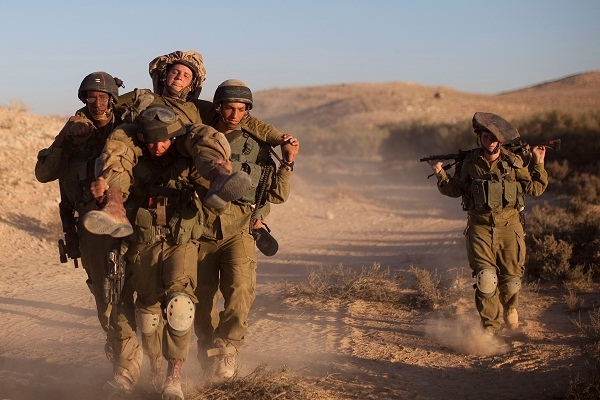It won’t take long for the US decision to allow women in combat roles to travel here according to The Times today, on the basis of, it must be said, unnamed sources. And the paper’s leader is duly supportive of the idea: ‘The number of women who want the risk and pass the tests will not be large, but those who earn a place at the spear tip of Western defence should be assigned there.’ On this reckoning, the right to join combat units – to kill – is just one more of those equality hurdles to surmount, like women becoming bishops or CEOs.
I’m against, myself. Partly this is wholly selfish – where does the principle of women and children go if women are going to be targeted as combatants? And partly it’s from an entirely different perspective – a dim historic recollection of the aspirations of feminists in the days of Women’s Lib to change the world order, not to join male-made war structures. I seem to remember from reading the Female Eunuch, Germaine Greer declaring, like other feminists, that women should refuse to sleep with soldiers (she was, however, all for them sleeping with lorry drivers, on class grounds) on the basis that feminism was more than about equal opportunities. It was about changing the world.
But some of my opposition is down to experience. During the conflict in Bosnia in the early Nineties I trawled through the conflict, looking for female soldiers to write about. There weren’t many in the Croatian army, few among the Serbs and none, so far as I could find, in the Bosnian Army. They were brave, feisty women. I met one very identifiable type in the Bosnian Serb barracks in Banja Luka who was a soldier, like so many, because her father had been; she had vowed at his grave to carry on the fight for him. (There are any number of women from British military families with precisely the same qualities as their father and brothers and would be right at home in the Army.) She told me bluntly that she knew she’d been wilfully targeted by the other side when her hair became loose and it was obvious she was a woman.
Then I met men who’d served with women on the frontline among the Croats; they admired the women, but confessed that when it came to an offensive, they forgot about their sex. Some women soldiers themselves talked about the necessity to be hyper feminine when they returned from the front – to go all girly and lipsticky, just by way of a corrective to the maleness of their life there. (The same phenomenon, I gather, is true of many women Israeli soldiers.)
But the one I remember best was a frail, pale, Little Dorrit character, who was her unit’s best sniper. She had to be badgered by her commander to talk to me and when she did she was anything but boastful. ‘I worry’, she says, ‘what killing will do to me later on’.
And that’s just it. I don’t know what it does to women, to our idea of women, if we make them – us – licensed killers, because that is what a soldier in a combat unit is. The natural impulse nowadays is to reduce the question to one of individual choice – you may not want to kill, Ms McDonagh, but why should you bar other women from doing so? It’s because – and this is something we find it hard, nowadays, to get our heads around – the impact of these things is never merely individual. It has an effect of how men view women, how women view themselves, about our common perspective on sex and gender. And I want to think of women as being conditioned by their maternal side, their nurturing aspects, even if they decide never to become mothers. I don’t want us simply to sign up to the qualities of maleness as defined in a military scheme of things.
That counts for more than the practical problems – the ethos of all male-units, the practical difficulties of providing women with adequate privacy on the frontline, their susceptibility to rape if captured. But can I say, bravery isn’t the issue. The question isn’t whether women are equally courageous or aggressive; they are and can be, simple as that. It’s whether we want, collectively, women’s social functions to include killing on our behalf. I don’t.







Comments